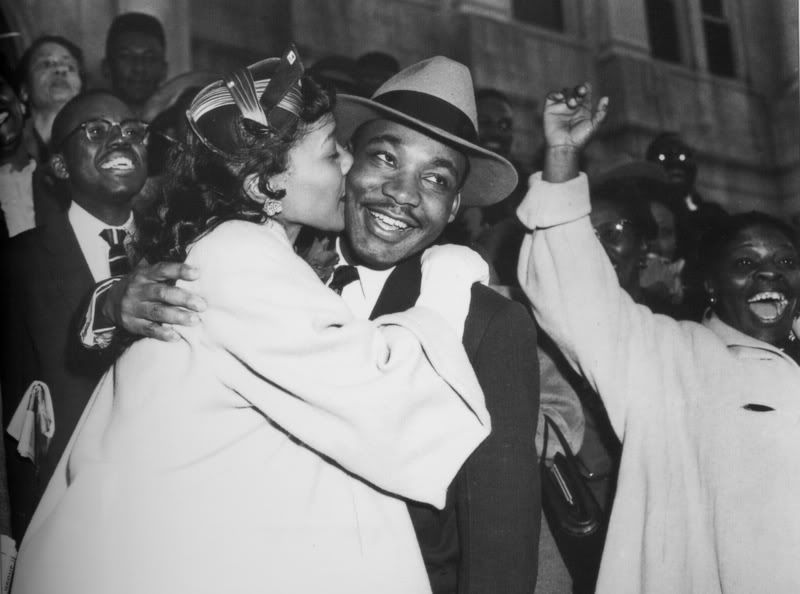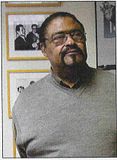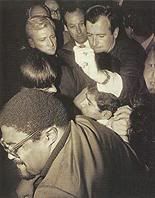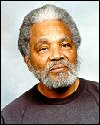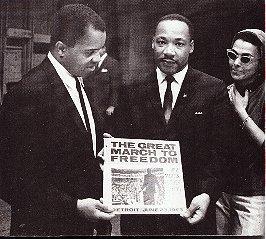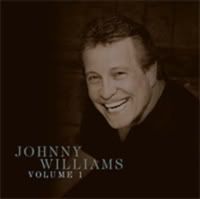I have let another milestone pass me by... my post about The Chants was in fact my 100th published post.! With all of the half-started posts strewn in my blogger dashboard, I never realised...To help me celebrate it, here is the late, the great, the wicked
Wilson Pickett, to sing that ode to perfection, 99 1/2 Won't Do. I just hope 102 is enough! Accompanying him,
The Alabama Christian Movement For Human Rights Choir sing the hymn and freedom song from which Pickett,
Eddie Floyd and
Steve Cropper took their inspiration.

In the summer of 1963, in the midst of the gruelling Birmingham, Alabama protests co-ordinated by
Rev Fred Shuttlesworth of the ACMHR and
Rev Martin Luther King of the SCLC, the Alabama Christian Movement Choir perfomed nightly at the Sixteenth Street Baptist Church in support of the protests. According to historian
Wilson Fallin Jr:
"In two organizations within the ACMHR, women made up the majority of the members. The ACMHR choir, formed in 1960, was intended to enhance the spirituality of the Monday night meetings. Twenty-three members formed the group. Most were Baptist women who sang in their church choirs and were accustomed to singing songs similar to those sung by the movement choir, including spirituals and gospel hymns. They sang "God Will Make a Way Some How," Walk with me Lord," and "Ninety-Nine and a Half Won't Do." One member of the choir remarked that "the choir sang with faith in God knowing that his power worked through their songs to give courage." In the mass meetings, female singers allowed their emotions to take over, and on many occasions, they had to be restrained by the ushers."Choir conductor
Carlton Reese adapted the lyrics to add new civil-rights phrases to a popular gospel song sung by
Mother Katie Bell Nubin (mother of even more famous
Sister Rosetta Tharpe). Reese is leading the singing, backed by a powerful thumping Hammond organ. This version was recorded by folk singer
Guy Carawan. The recording served a dual purpose, giving nightly hope and strength to those taking part in the protest, but also as a conscious element of
Project C, a strategy to confront the racialist system of segregation in the city head-on in a high-visibility strategy that would engage the entire nation. The singers themselves faced intimidation and arrest.
Cleopatra Kennedy was 20 years old in 1963 when she sang solos for the choir. She recalls what it was like the first time she was sent to jail:
"That first time, she was in jail for 14 days, but the group sang songs and stomped their feet on the iron beds to make their music. "Singing songs was our way of keeping our self-esteem up, of washing away fear," she says. The day after she was released, she went back on the picket line." When Martin Luther King was arrested and jailed in April of that year, local liberal white church leaders wrote to him urging him to tone down the movement's activities, calling them "unwise and untimely". His response was the famous
Letter From A Birmingham Jail, with his powerful riposte:
"For years now I have heard the word "Wait!" It rings in the ear of every Negro with piercing familiarity. This "Wait" has almost always meant 'Never." The situation would become even more ense later in that year, with the use of dogs and fire hoses against student and youth protestors, and the bombing of the 16th Street Church during a Sunday school session, with the tragic death of four children. It was in trying times like these that freedom songs could give hope and inspiration.
Jump forward in time two years, to May 1965.
Wilson Pickett arrived in Memphis courtesy of
Jerry Wexler, who was sure that The Little Label That Could had the spark he needed to secure Pickett, former member of
The Falcons, an elusive r&b hit. Pickett sat down with
Steve Cropper, and within a matter of half-an-hour, they had come up with
In The Midnight Hour and
Don't Fight It, both taking the behind-the-beat Stax sound in a new direction by incorporating a behind-the-beat 'Jerk' rhythm. Not a bad night's work! So pleased was he with the sessions, that he sent each of the MGs a $100 thank-you gift.

Wexler and Pickett were eager to return in October and again in December 1965.
Eddie Floyd, Wilson's old partner from The Falcons, Steve Cropper, keen to earn some more songwriting money, and
Donald Dunn, impressed with Pickett's vocal ability, were all pleased to see him again.
Jim Stewart was less keen, perhaps fearful that Atlantic Records were borrowing too much of the Stax sound. The MGs were joined this time by
Isaac Hayes, brought in to play piano while
Booker T Jones was at college. The new sessions were more difficult, as the group felt the pressure to reproduce what they had achieved in May. Nervous about the prospect, Steve Cropper turned to the experienced Eddie Floyd for advice about songwriting. Cropper said in an interview with
Gerry Hershey:
"He had been on the stage, and he knew what was going on... He was real helpful to me. Eddie knew the pulse on the street, he knew the pulse of the ghettos of Chicago and Detroit, and I didn't know jack shit about that..."
Eddie Floyd and Cropper had been working on a new song for a whole week,
634-5789, before Wilson arrived back in Memphis on 19th December. After hearing a tape, a clearly tense and nervous Pickett let fly:
"This is it? This is my hit tune? It's a piece of shit!" Eddie Floyd had to be prised off his old buddy! But apparently, it had been no different in the old days with The Falcons...
Later on that day, Wilson had calmed down, and so had Eddie, so they went over to Pickett's hotel to write something else. Eddie and Steve noticed a Coca-Cola billboard, with the slogan
'Ninety-Nine And A Half Won't Do.' Recalling the gospel tune and the freedom song, and with Eddie suggesting they add that stop-start behind-the-beat jerk feel, soon Pickett had another classic in the can, so to speak!

The songwriting and recording relationship was sometimes explosive but always professional, and could have produced even more hits, had not Jim Stewart become uncomfortable with the amount of studio time devoted to an Atlantic artist. Citing Pickett's 'drunkenness' (an assertion that Cropper and others hotly dispute, citing Pickett's sober dedication to every session), Stewart packed Pickett and Jerry Wexler back to New York. It was time for them to try to find similar magic at FAME Studios...
The Alabama Christian Movement Choir - 99 1/2 Won't Do
Wilson Pickett - Ninety-Nine And A Half (Won't Do)
Read A Letter From A Birmingham Jail here... Information from Soulsville: USA by Rob Bowman, Nowhere To Run by Gerry Hershey, and liner notes of Voices Of The Civil Rights Movement: Black American Freedom Songs 1960-1966 by Bernice Johnson Reagon and Phyllis May. Wilson Fallin's article about the ACMHR and the role of women in the organisation can be found here. Visit the Birmingham Civil Rights Institute to read more and to study eye-witness accounts of events from 1956-1963. Quote from Cleopatra Kennedy from an interview for Baylor University magazine.
Information from Soulsville: USA by Rob Bowman, Nowhere To Run by Gerry Hershey, and liner notes of Voices Of The Civil Rights Movement: Black American Freedom Songs 1960-1966 by Bernice Johnson Reagon and Phyllis May. Wilson Fallin's article about the ACMHR and the role of women in the organisation can be found here. Visit the Birmingham Civil Rights Institute to read more and to study eye-witness accounts of events from 1956-1963. Quote from Cleopatra Kennedy from an interview for Baylor University magazine.
 An elderly man wakes up one Monday morning and remembers something he planned to do a long time before. He puts on a winter jacket and a grey cloth cap. Like he used to do, he stops at the hallway mirror, looks at his reflection, and sets the cap at a jaunty angle. That's more like it, he thinks, and chuckles, raising one eyebrow as he recognises the face staring back at him. The one who, with the confidence of a younger man, set out to do this same thing 40 years ago.
An elderly man wakes up one Monday morning and remembers something he planned to do a long time before. He puts on a winter jacket and a grey cloth cap. Like he used to do, he stops at the hallway mirror, looks at his reflection, and sets the cap at a jaunty angle. That's more like it, he thinks, and chuckles, raising one eyebrow as he recognises the face staring back at him. The one who, with the confidence of a younger man, set out to do this same thing 40 years ago.















